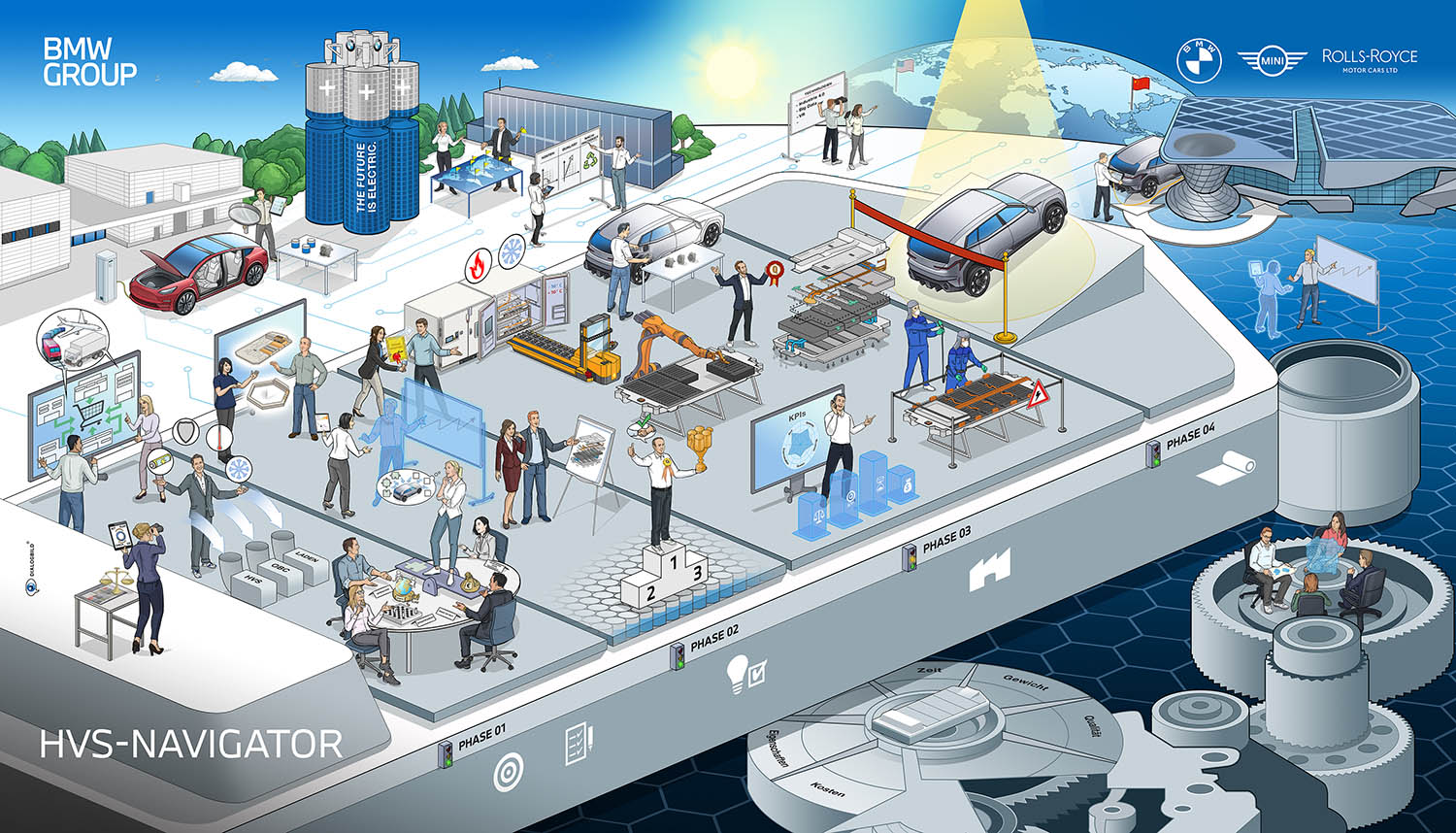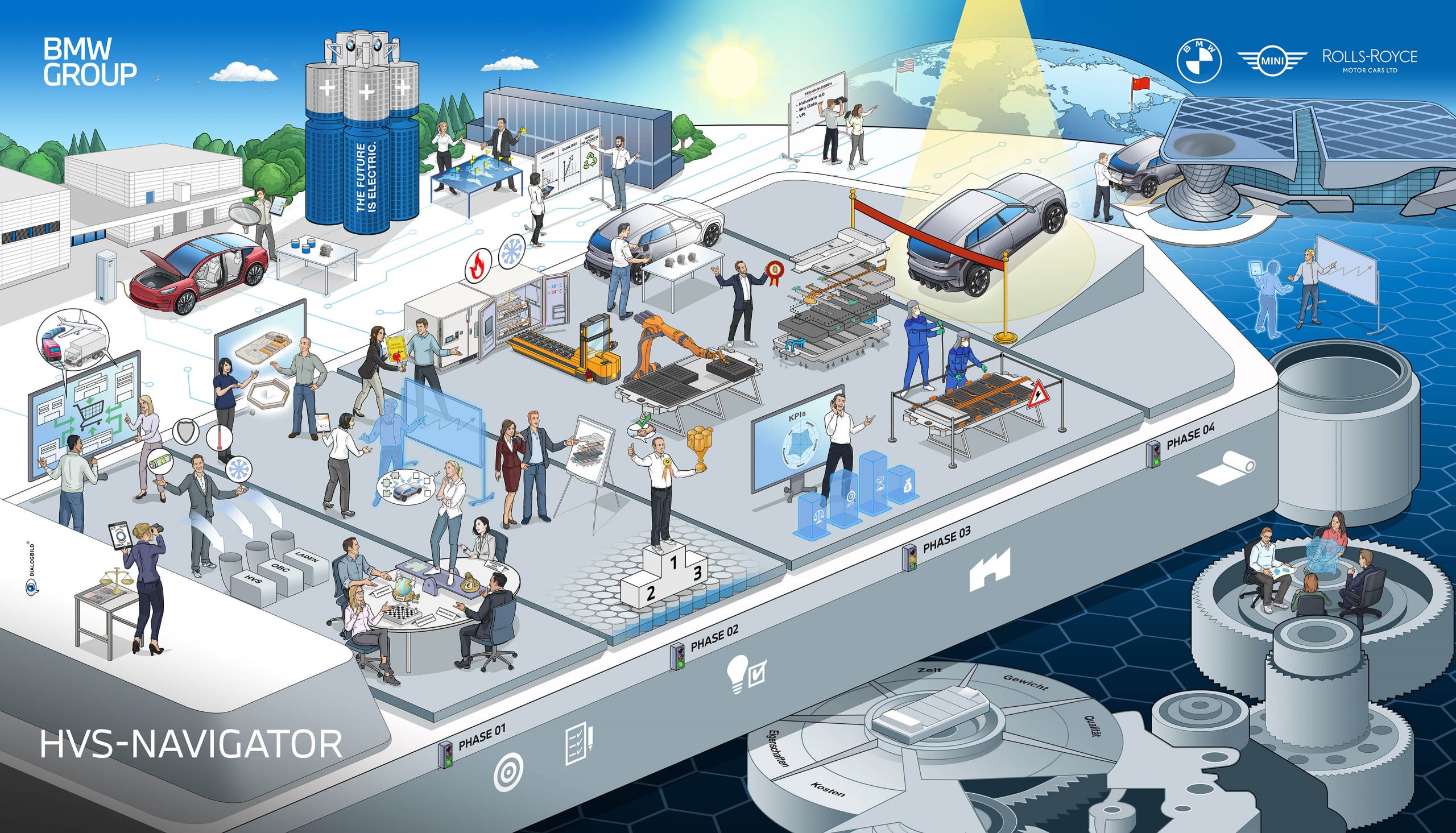
BMW Mission Statement: Groundbreaking vision for the future of mobility
The BMW Mission Statement represents a clear vision of the future of mobility. As one of the world's leading premium manufacturers, BMW is committed to innovation, sustainability, and the highest quality. In this comprehensive guide, you'll learn everything about the BMW Group's vision, its sustainability goals, and the strategy the company intends to use to shape the mobility of the future.
The BMW Group Vision: Paving the Way for Tomorrow's Mobility
The BMW Group has set itself the goal of becoming the most successful and sustainable premium manufacturer for individual mobility. The BMW Mission Statement is reflected in all areas of the company and drives the continuous development of products and services.
Core Elements of the BMW Corporate Philosophy:
- Customer Focus
- Technological Innovation
- Sustainability
- Premium Quality
- Global Presence
BMW Strategy: The Path to an Electric and Digital Future
BMW's strategy focuses on three main areas that the company considers crucial for the future of mobility:
1.) Electromobility: BMW is strongly committed to the development and production of electric vehicles. By 2030, the share of fully electric BMW and MINI vehicles is to reach at least 50% of all deliveries.
2.) Digitalization: The connectivity of vehicles and the integration of digital services play a central role in BMW's strategy.
3.) Circularity: BMW strives for a circular economy to use resources efficiently and minimize waste.
BMW Sustainability: Responsibility for the Environment and Society
Sustainability is an integral part of BMW's mission statement. The company has set ambitious goals to reduce its ecological footprint and assume social responsibility.
Key BMW sustainability goals:
- Reduction of CO₂ emissions by more than 40% by 2030 across the entire vehicle life cycle
- Establishment of a climate-neutral business model by 2050 at the latest
- Increase the proportion of secondary materials in vehicles to 50%
- Introduction of fully vegan interiors from 2023
The New Class: BMW's vision for the future of mobility
Starting in 2025, BMW will launch a completely new generation of electric vehicles with the "New Class." These vehicles will set new standards in terms of electrification, digitalization, and sustainability.
Highlights of the New Class:
- 30% longer range
- 30% faster charging
- 25% more efficiency
- Use of innovative round battery cells
- Covering made from recycled fishing nets
Implementation of the mission statement in practice
BMW implements its mission statement in all areas of the company:
- Research and Development: Continuous innovation in the areas of electromobility, autonomous driving, and digitalization.
- Production: Implementation of sustainable production methods, such as the BMW iFactory in Debrecen, Hungary, which operates without fossil fuels.
- Supply Chain: Establishment of high environmental and social standards throughout the entire supply chain.
- Employee Development: Promotion of diversity and continuous training of employees.
- Social Commitment: Supporting social and cultural projects worldwide.
Challenges and Future Prospects
Implementing BMW's mission statement also brings with it challenges:
1.) Managing the transition to electromobility
2.) Securing the supply of raw materials for batteries
3.) Expanding the charging infrastructure
4.) Adapting to customers' changing mobility needs
BMW is addressing these challenges with continuous innovation and strategic partnerships.
Conclusion: BMW's Mission Statement as a Compass for the Future
The BMW Mission Statement is more than just a corporate philosophy—it's a compass that guides the company toward a sustainable and innovative future. With its focus on electromobility, digitalization, and sustainability, BMW is positioning itself as a pioneer in the automotive industry.
The challenges are significant, but BMW is meeting them with clear goals, innovative technologies, and a strong commitment to sustainability. The New Class, which will be launched in 2025, will be an important milestone on this path.

E-DRIVE DEVELOPMENT
THINKING ABOUT TOMORROW'S OPPORTUNITIES
With 31 production and assembly plants in 15 countries, the BMW Group is today one of the world's leading premium car manufacturers. The BMW Group is responding to the current age of electric mobility with clear and forward-looking visions of electric cars that are already thinking about the possibilities of tomorrow. The processes along the way are complex and require coordinated and targeted development steps. ...
Frequently asked questions
What is meant by corporate philosophy?
The corporate philosophy encompasses the fundamental values, beliefs, and principles that guide a company's actions and decisions. It forms the foundation for the company's culture and mission statement.
Why is a corporate philosophy important?
A clear philosophy for your company provides guidance for employees and managers, strengthens the company's identity, improves employee motivation and retention, supports decision-making, and helps differentiate the company from the competition.
How does a corporate philosophy differ from a corporate mission statement?
Philosophy describes the "why" behind the company's actions, while the corporate mission statement focuses on the "what" and "how." The mission statement is derived from the philosophy and is often communicated externally.
What elements does a corporate philosophy include?
A comprehensive corporate philosophy typically consists of:
- Mission: The fundamental purpose of the company.
- Vision: A picture of the desired future.
- Values: The ethical principles that guide behavior.
- Principles: Concrete guidelines for behavior derived from the values.
How can I develop a corporate philosophy?
To develop a philosophy for your company, you should:
- Analyze the status quo.
- Define your core values.
- Formulate your mission and vision.
- Develop principles.
- Involve employees.
- Document and communicate the philosophy.
- Live the philosophy.
What role do managers play in implementing the company philosophy?
Managers are crucial for embedding the company philosophy. They must live the values, communicate them regularly, and ensure that decisions are made in line with the philosophy.
How can I ensure that my corporate philosophy is lived?
To ensure that your company's philosophy is lived:
- Integrate it into the recruitment process.
- Offer training.
- Conduct regular feedback sessions.
- Measure success through employee surveys and culture audits.
What challenges can arise when implementing a corporate philosophy?
Challenges can include resistance to change, discrepancies between proclaimed values and lived reality, and difficulties with measurement and evaluation.
How often should your company's philosophy be reviewed?
It's advisable to review your company's philosophy regularly—at least annually—to ensure it remains relevant and adapts to changes in the market or society.
Can a strong company philosophy influence business success?
Yes, a strong company philosophy can have a positive impact on business success by leading to higher employee productivity, better customer loyalty, and a stronger brand image.
 SELECT INFO PACKAGE
SELECT INFO PACKAGE